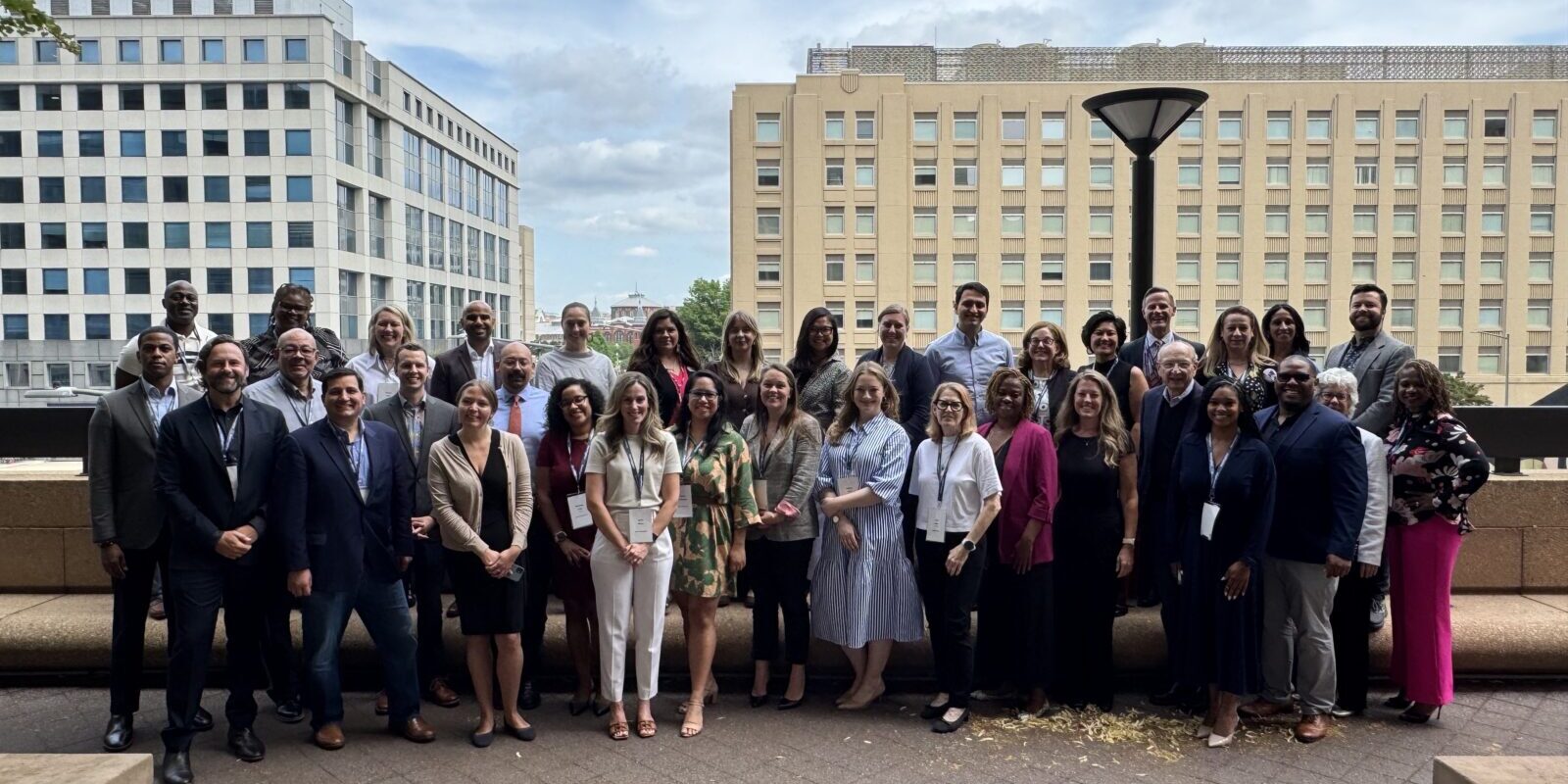When it comes to improving economic mobility, passing policy is just the start. Transforming systems requires local leadership, strong civic infrastructure and a commitment to expanding opportunity. All things easier said than done. That’s why StriveTogether and The EdRedesign Lab at Harvard Graduate School of Education formed the Policy Implementation Community of Practice (CoP), a space where state and local leaders work together to move cradle-to-career policy from idea to impact, with economic mobility, effectiveness and community leadership at the center.
The CoP brings together leaders advancing cradle-to-career strategies funded by public dollars. Together, they’re building relationships, sharing tools and testing ways to align agencies, center community leadership and measure what matters.
The group faced challenging questions: How do you support policy implementation that shifts systems when every state context is different? How do you create space for public sector leaders to share what’s working, where they’re stuck and how they’re adapting without defaulting to a one-size-fits-all approach?
The CoP enables participants to address systemic challenges unique to their specific contexts collaboratively, leveraging shared knowledge while respecting diverse approaches. This environment fosters continuous improvement and empowers leaders to adapt evidence-based strategies and innovate solutions that resonate locally. By connecting stakeholders across communities, the group establishes proven models of implementation. Progress is driven through shared learning, collective wisdom and a consistent focus on outcomes, regardless of geographic or policy differences.
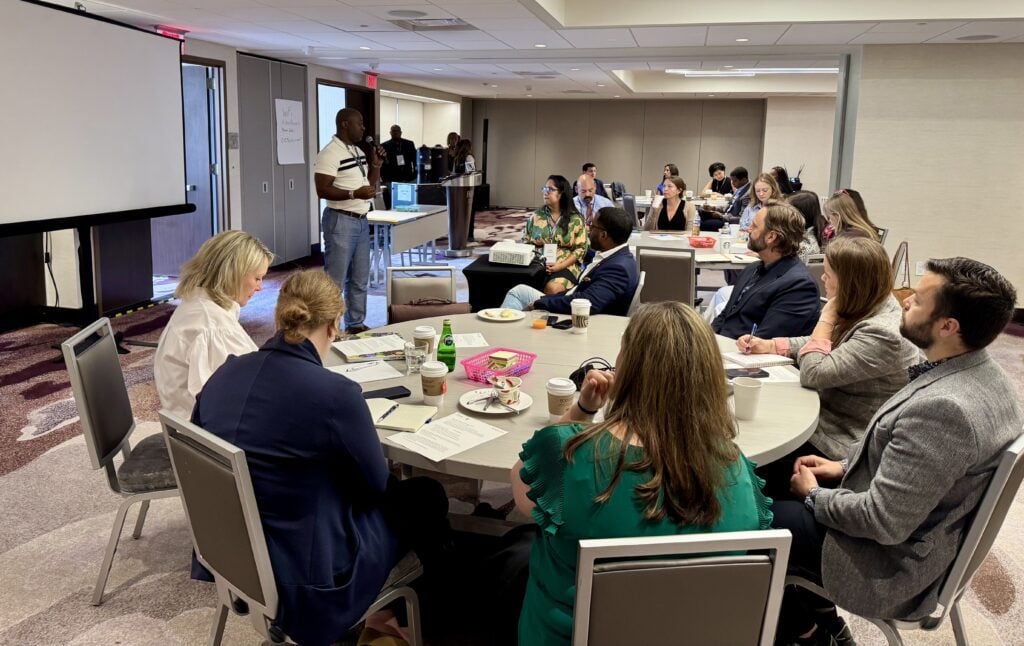 Building a Blueprint for Implementation
Building a Blueprint for Implementation
In 2023, Josh Davis, vice president of policy and partnerships at StriveTogether; April Shine, founder of Shine Strategies; and Monroe Nichols IV, mayor of Tulsa, Oklahoma, incubated the CoP as a nonpartisan, peer-driven space for learning — not a top-down initiative.
The CoP formally launched in 2024, in partnership with EdRedesign. Early participation in the CoP was open to states that had passed statewide legislation, secured public funding or were poised to implement policy, with the requirement that they bring a public sector partner to the table. This ensured that implementation strategies were shaped both by those delivering services and those experiencing them.
At that time, just three states — Minnesota, Ohio and Washington — had secured public funding to support place-based partnerships and their strategies. Each state took a different approach. Minnesota, in partnership with its Department of Education, invested public funding in place-based efforts to improve student outcomes statewide. Ohio used American Rescue Plan Act (ARPA) resources to build cross-sector coalitions focused on student attainment. Washington aligned its strategy with regional partnerships to expand postsecondary access, advancing the state’s broader postsecondary goals.
As of 2025, the CoP opened participation to StriveTogether-supported organizations advancing policy, managing public dollars, or working closely with state agency staff. 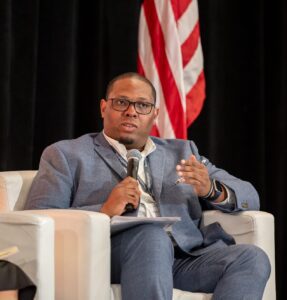
Today, the Community of Practice includes teams from seven states: California, Minnesota, Ohio, Tennessee, Texas, Washington and new member Maryland, which joined following the passage of the ENOUGH Act. Together, these teams form a learning network committed to strengthening the public systems that shape opportunity for children and families.
This Community of Practice is a structured, peer-driven initiative that helps state and local teams build shared capacity across four critical stages of implementation:
- Rulemaking and early engagement: Shaping regulations, building coalitions and incorporating community feedback early in the process
- Program rollout: Coordinating across agencies, engaging stakeholders and ensuring meaningful program uptake
- Impact evaluation: Using data to track progress, troubleshoot in real time and refine strategies
- Reauthorization and scaling: Sustaining what works through long-term funding, adaptive leadership and continuous learning
Through convenings, facilitated sessions, technical support and real-time peer exchange, participants in the CoP are developing implementation strategies that are responsive, durable and rooted in local context. Whether they’re building infrastructure from scratch or refining existing systems, every team is focused on one goal: expanding pathways to upward mobility for children and families.
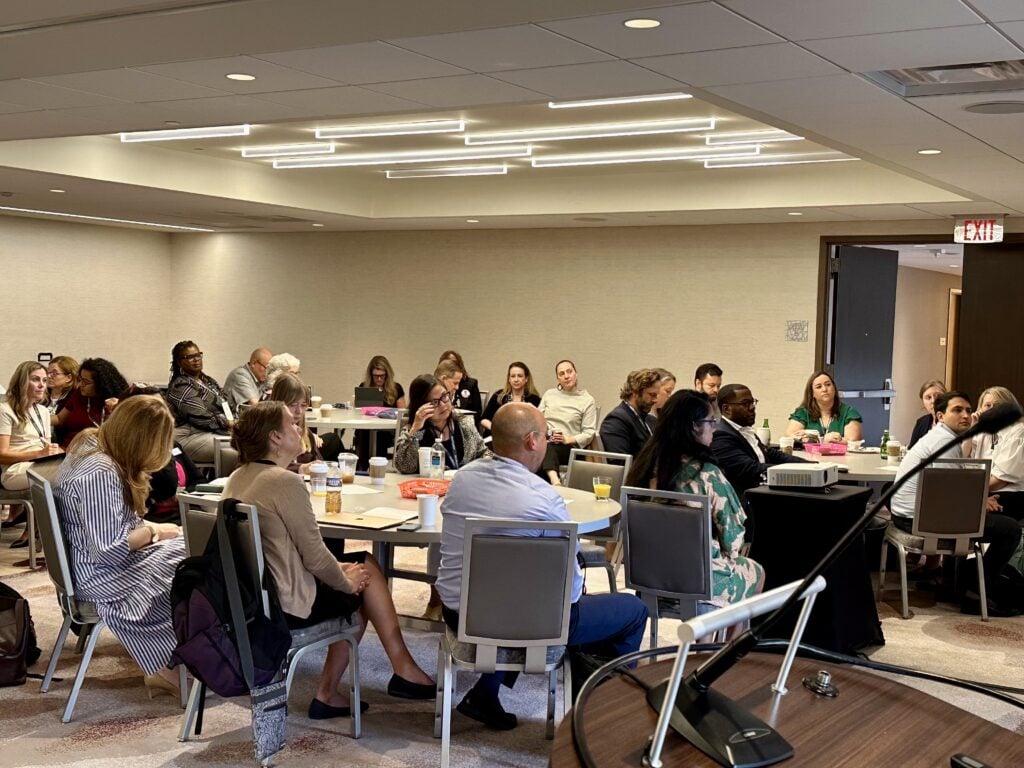 How Peer Learning Is Shaping Implementation
How Peer Learning Is Shaping Implementation
The structure of the CoP is built on evidence that cross-state collaboration can improve policy implementation outcomes. Through structured peer exchange, public sector leaders are identifying what works and then applying those lessons to the realities of implementation.
Over the first half of 2025, the CoP surfaced three insights that are now guiding how participating teams approach their work:
- Intentional co-design: Implementation is more successful when policies are shaped with the people they aim to serve. That means sharing decision-making power in setting rules, funding structures and program criteria.
- Trust through local leadership: Community-based, proximate leaders bring deep knowledge of context and act as trusted messengers. Their partnership is essential for meaningful engagement and accountability.
- Early real-time tracking and data transparency: The ability to monitor progress in real time allows teams to adjust strategies early and build sustained momentum.
Each insight is actively shaping how participating states implement policy — guiding how teams engage stakeholders, use data and structure their work.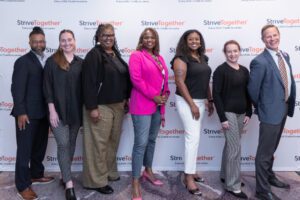
In Minnesota, the Community of Practice helped broaden and deepen public sector partnerships. What began primarily with the Department of Education has grown to include the Department of Children, Youth and Families and the Office of Higher Education’s P20 Education Partnership, collaborating with the nine StriveTogether network members that make up the Education Partnerships Coalition of Minnesota. This expansion has also elevated the level of engagement — moving from program managers and directors who are critical to implementation to now include two Commissioners, three Assistant Commissioners and an Executive Director who are positioned to connect work across agencies and programs.
As John Fanning, director of the Education Partnerships Coalition of Minnesota, shared, “The ‘unspoken’ thing here is that relationships are so key, and StriveTogether and specifically this Community of Practice help us to make the most of them. Inviting the Assistant Commissioner of our new Department of Children, Youth and Families into StriveTogether spaces positioned her to be able to speak to her peers and get them on board to further these relationships.”
Through these relationships, the CoP is helping to build stronger bridges across sector and agency silos, creating opportunities to work collaboratively on shared implementation goals. Bringing state and community partners together means policy implementation strategies can be created in partnership with community members including youth, parents and caregivers and point-of-service practitioners like childcare providers, teachers and social workers. This ensures that policy, practice and intended impact are all closely aligned.
Washington state embedded co-design into the rollout of its Regional Challenge Grant, with leaders like Mike Meotti emphasizing the importance of place-based partnerships. Washington Student Achievement Council staff are supporting newer communities and using early data to track progress, troubleshoot and sustain impact.
In Texas, the CoP is informing how the Texas Impact Network, alongside the state education agency and regional service centers, supports effective implementation of education policy across communities of all shapes and sizes. This innovative partnership, developed by CoP participants Lizette Ridgeway and Ben Mackey, aims to help build local capacity to support strong policy implementation of state policy leading to improved student outcomes and system improvements.
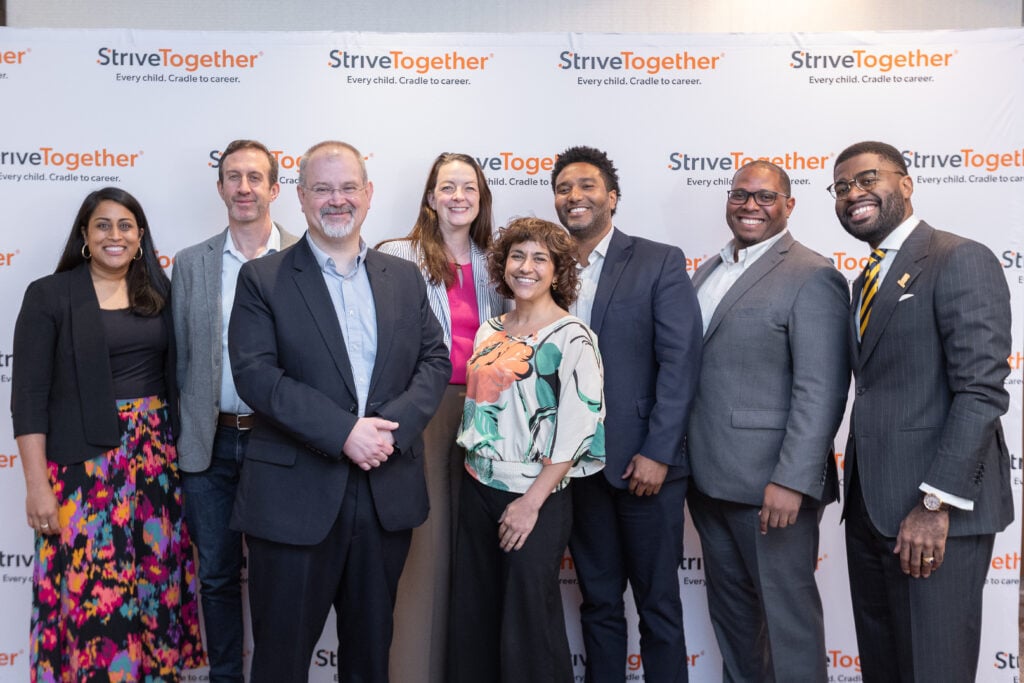 Advancing Together: The Work Ahead
Advancing Together: The Work Ahead
Across the Community of Practice, leaders are building new muscles for implementation. They’re centering community leadership, coordinating across agencies and defining success beyond compliance.
We continue to hold space, elevate insight and help great work travel. Every story we share is reviewed by those closest to the work because supporting systems change means supporting the people doing it.
As we look ahead to fall 2025, the Community of Practice will keep learning, listening and sharing what emerges. The upcoming Policy CoP Public Leadership Summit in Atlanta this September will bring together public sector leadership from across the StriveTogether Cradle to Career Network with StriveTogether and EdRedesign leadership for shared learning and connection. This is a chance to shape what comes next. Leaders will exchange insights, reflect on challenges and co-create solutions grounded in local context. It’s a moment to advance collective strategies, deepen relationships and strengthen the civic infrastructure needed to turn policy into progress for every child, every family and every community.
 April Shine is a consultant for StriveTogether, leading the national policy implementation community of practice and the founder of Shine Strategies.
April Shine is a consultant for StriveTogether, leading the national policy implementation community of practice and the founder of Shine Strategies.
 Rob Watson is the Executive Director of the EdRedesign Lab at Harvard Graduate School of Education, Lecturer on Education at Harvard Graduate School of Education and Co-founder & Board Chair of the Poughkeepsie Children’s Cabinet, a StriveTogether network member.
Rob Watson is the Executive Director of the EdRedesign Lab at Harvard Graduate School of Education, Lecturer on Education at Harvard Graduate School of Education and Co-founder & Board Chair of the Poughkeepsie Children’s Cabinet, a StriveTogether network member.
 Tauheedah Jackson is the Deputy Director of the EdRedesign Lab at Harvard Graduate School of Education and Director of EdRedesign’s Institute for Success Planning.
Tauheedah Jackson is the Deputy Director of the EdRedesign Lab at Harvard Graduate School of Education and Director of EdRedesign’s Institute for Success Planning.
 Julie Allen is the senior director of strategic communications, development and operations at EdRedesign where she focuses on strategy, communications, development and operations
Julie Allen is the senior director of strategic communications, development and operations at EdRedesign where she focuses on strategy, communications, development and operations

